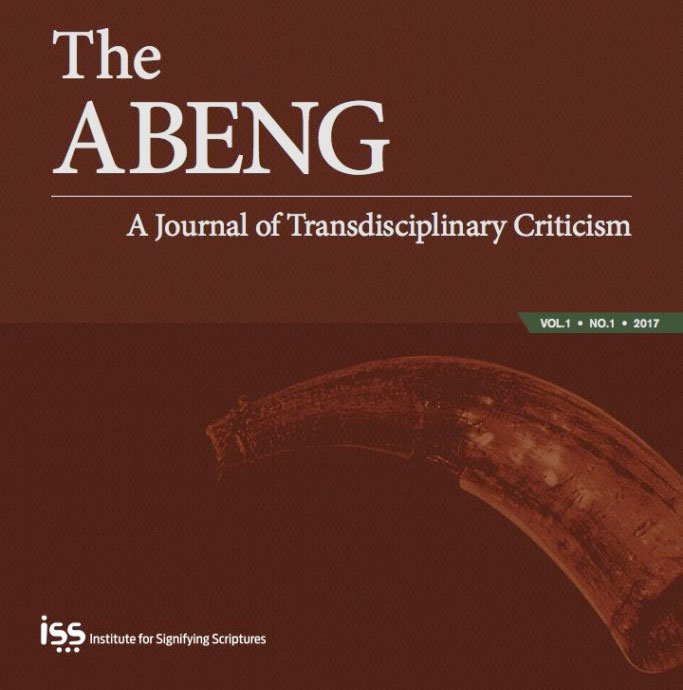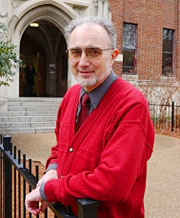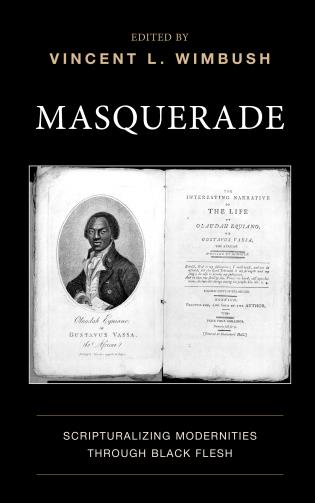
Call for Papers
March 13, 2017
Reflections on the Second Annual Meeting of the ISS – Alonzo Huntsman
March 18, 2017Some Reflections – Daniel Patte

As could be expected, during the meeting my reflections were framed by our Director’s Address. Building upon the preceding Annual Meeting, he reminded us of the ISS agenda – addressing:
- what it [ISS] can mean to us as we strive to be free agents, what compelling contribution it can make in the world.
- Modeling and advancing conversations about and critical research projects on the inventions and orientations of the human and the structures of their social order.
- [Framed by] the concept of ‘scriptures’ as shorthand for the politics of language and the relations of discourse and power. (p. 1)
- Having to do with naming and addressing our fraught global/local situation…conversation and work that can facilitate and model freer agency that in turn may shape a freer world. (p. 2)
- The state as meaning-maker and meaning-manager/governor. How did this come about? How does it work?
- With what results or consequences? How do we participate, how are we implicated, in it? How do we suffer from it or transcend it? (p. 4)
Then to my delight, Vincent Wimbush turns to Michel de Certeau (1) L’écriture de l’histoire – the English title of which, The Writing of History, hides the play on word: L’écriture does mean “the writing” – a primary concern of this book –, but it  is also the phrase that designates “Scripture,” and therefore the title could be The Scripturalizing of History… a horrible translation but a most appropriate title for our meeting.
is also the phrase that designates “Scripture,” and therefore the title could be The Scripturalizing of History… a horrible translation but a most appropriate title for our meeting.
When we write or talk about any event of the past (as represented by its traces, including writings, such as the Bible) or of the present, we are not simply writing its history; we are scripturalizing it – and this whether or not we are conscious of doing so.
Vincent continues by offering a very helpful description of the way in which, according to de Certeau, [18th-century French] society came to be ‘managed’ (policé) through the structuring of language and religion, religion as language. … The clerics come to be socialized as the functionaries—the living embodiment, carriers, guarantors of the right order—of a religious system or ideology. [And that]…Gouverner, c’est faire croire… (“To govern is to make subjects believe”)…[and is] the “management of minds” as the overarching rational goal of the state. (p. 6-7)
And it is not simply French political leaders who perform this scripturalizing of society: present-day political leaders do so everywhere – including in the USA; and WE do so each time we speak about an event.
Consequently, before commenting on the rest of Vincent’s Address, I want to turn to a theme which came back again and again in our conversations: the way in which the Trump campaign and now his government attempt and often succeed in “making us believe” all kinds of “fake news”—implementing what de Certeau calls the “management of minds as the overarching rational goal of the state.” And now “fake news” is used to speak about “factual” newspaper reports. Much has been said about this in our discussions. Let me add a few sideways reflections based on Michel de Certeau’s works.
I met him in 1969, i.e. a year after he had published his most insightful reflections on May 1968 (2). In this article, de Certeau offers a definition of event which is very pertinent for our discussion:
An event is not what one can see or know about it, but what it becomes.
Un événement n’est pas ce qu’on peut voir ou savoir, mais ce qu’il devient.
According to de Certeau’s definition, when a report (newspaper report, a critical exegesis of a biblical text) strives to speak as accurately as possible about “what one can see or know about” an event one has not really presented the event. Thus it is appropriate to call such report “fake news.” And indeed this is what political discourses (if one can designate Trump’s discourses in this way) do. And it is also what we commonly do in historical studies and biblical studies…and what we should not do in ISS!
An event is not only what one can see or know about it, but [also] what it becomes. As de Certeau wrote elsewhere, (3) an event is always “une rupture instauratrice”—a break (rupture) with what preceded it, which opens up new possibilities (instauratrice).
So, in L’écriture de l’histoire—a book which for me (a fanatic of methodology) is primarily about historiography (illustrated through the study of 18th-century French society)—de Certeau insists that a historian’s sight must be broadened: it should not be limited to the facts of an event; it must include the event’s impacts as an ongoing production of meaning. The historian’s role necessarily involves reconfiguring the past from the perspective of the present. Not projecting upon the past our visions, but recognizing how the past marks our present. Historiography—and by extension whatever we say about any “event”—includes, for de Certeau, three stages/dimensions:
- it is a product of the social milieu where it is produced; it is a product of consummation; if it was not valued in this social milieu it would not be produced (with Marx, against Ricoeur); we choose to say something about an event, because such saying as some value in our milieu;
- historiography is a practice; the historian has a technique – critical methods, that evolve with cultural changes; we usually analyze the event we want to talk about – rather than talking from the top of her head;
- historiography is BOTH historical scripturalizing (écriture/writing) as mirror (reflecting the present as it reflects the past; lie as well as truth) AND performative scripturalizing (écriture/writing) as the building of a tombstone for the dead, as a burial ritual – as tombstone for the dead historical; scripturalizing both honors and eliminates the past, as in the process of mourning (4). But because of this dual character, historiography accounts for the traces of – the memory of – the past events up to the present, thus in the history of its receptions. Our discourse about any event involves scripturalizing it both in the sense that our scripturalized discourse reflects the present as it reflects the past (including the recent past), and in doing so we both honor and eliminate the past event by showing what this event becomes in our present (5).
“There is a dissociation between the existential exigency of saying meaning and the social logic of doing it” (L’écriture de l’histoire, 171). A thinking practice of scripturalizing (what ISS is all about) always and necessarily reflects the tension between the necessity of thinking our practice (the existential exigency of saying meaning) and the impossibility of truly scripturalizing it (in the social logic of doing it). So in the end the choice of what to say and not to say about an event is pragmatics—it is ethics. It concerns “what it [the event] becomes” in our context; how particular aspects of the event affects our neighbors (in the most general sense). And this ethical dimension—focused on the way our speaking/doing affects our neighbors—makes our scripturalizing (as individuals, as small groups, as ISS) a way of resisting the scripturalizing by political authorities and institutions. This is urgently needed as we saw by looking at 13th—but not a simple task.
Another book by Michel de Certeau which is very appropriate for me is The Practice of Everyday Life (Arts de faire) (6) where he makes an important distinction between “strategy” (implemented by institutions and structures of power) and “tactics” (implemented by individuals)—that I take as to ways of scripturalizing. He illustrates the difference between strategies and tactics by describing “Walking in the City”—a chapter beginning with the description of “the city” (New York City viewed from the World Trade Center) as it has been generated by the “strategies” of governments, corporations, and other institutional bodies, followed by the description of how individuals walk through the city in ways that are “tactical” following their own purposes, taking leisurely walks or taking shortcuts, “poaching on the territory of others”—using for their own purposes the strategic grid of the streets, bending its rules and products to reach their goals as they wish.
Sure, we live in city grids that resulted from the strategic scripturalizing by institutions and structures of power (the “management of minds” as the overarching rational goal of the state. (VW, p. 7) and that reflect disastrous (racist, political, classist, etc.) ideologies in front of which we feel just powerless. We have to live in these city grids.
Yet, we pedestrians can navigate freely the city grids, transgressing them in a tactical scripturalizing! And to begin with, by speaking out. (7) And we do so already following (consciously or not) the models of many transgressing tactical discourses—such as the way of life and the scripturalizing discourses of slaves and of oppressed people, whatever might be the oppressions they suffer. The difference is that as an Institute made up of academics—or retired academics—we can envision and practice our transgressing, tactical scripturalizing from a position of relative power. Our speech act is not powerless; it is transformative. (8)
This is a hope that drove Michel de Certeau. What we are doing cannot be effect-less. Our study of the scripturalizing performed by the nation-state, and our recognition that in turn we are scripturalizing by writing/speaking about the nation-state scripturalizing is neither pointless nor powerless.
And yet…
Can we truly hope that together we will perform significantly transformative speech acts that would have the real power to address the racism embedded not only in our culture but also squarely in our entire economic system—as 13th—so much so that by the very use of my phone (power by Verizon), or by going to buy something for my garden (at Home Depot), I contribute to this racist order. As was expressed in many ways by our group, seeing 13th put a damper on our hopes for easy solutions.
We might lure ourselves into thinking that 18th-century French society or the Berlin Conference or Thomas Paine’s 18th century (Seth Perry), or late 19th century scholarship (Halvor Moxnes, Jesus Beyond Nationalism) were parts of a long-gone ugly past, but, Hector Amaya (Citizenship Excess: Latino/as, Media, and the Nation) and Halvor Moxnes (on the construction of the “immigration problem” by the alt-right, now attempting to implement their policies on immigration as reasonable and in the national interest) and 13th made it clear that this ugliness is with us and that we are part of it, contributing to it even as we are striving to confront it. Indeed our very location, Charlotte, North Carolina (which, as a matter of conscience, led some would-be participants not to join us for this meeting in this location) is more ambivalent than it seemed from far as the “Refraction” of Eric Hoenes del Pinal pointed out as a “local Latino” (Guatemalan).
Should we take 13th as a representation of the “grid of the city” established by the scripturalizing “strategy” (performed and implemented by institutions and structures of power) in which we cannot but live and function: acknowledging that we cannot but be subjected to these institutions and structures of power. This is in large part what this AM have done for us: as Monya Stubbs wrote, we “are subjected by the governing authorities (passive imperative)” (reading ὑποτασσέσθω in Rom 13:1 as a passive imperative) and have to acknowledge that this is what our situation is (and therefore we “subject [ourselves] to the governing authorities” reading ὑποτασσέσθω in Rom 13:1 as a middle imperative).(9) By scripturalizing on their scripturalizing strategy and the greed of the city they impose upon us we acknowledge that we cannot help but to be subjected to these governing authorities (passive). But by the very fact that we are scripturalizing on their scripturalizing strategy we subject ourselves to these governing authorities in the ambivalent position of people who know the game. And therefore we have the freedom to be pedestrian who, walking in the grid of the city, transgress the grid, taking liberating shortcuts – upholding, championing, becoming ourselves “the girl born in Nepal who learns Spanish from the Salvadoran boy who sits next to her in English class” in Charlotte North Carolina (Eric Hoenes del Pinal).
——————————————————
Notes:
- With whom by chance I interacted, long ago, when I was embedded in the Jesuit library of Chantilly (France) in 1969, where I was “distracted” from my research (on early Jewish hermeneutic) by a small colloquium (gathered around Roland Barthes) discussing semiotics and Biblical studies – that I was allowed to observe as auditor (as Michel de Certeau also was); it was my first introduction to semiotics. Xavier Léon-Dufour sj, published several of the papers (and additional requested essays, including by P. Ricoeur) in Exégèse et herméneutique (Paris: Seuil, 1971). You give me the occasion to pull down from my shelves some of his books I had not open for a long time.
- Michel de Certeau, «Pour une nouvelle culture. Prendre la parole » Études, juin-juillet 1968, 39-54 – written a few months, after the confusing “event” of May 1968. (If you’re too young or too American to remember, Google “1968 France”!). This was the first of two articles on May 1968 – the second was entitled «Pour une nouvelle culture. Le pouvoir de parler » Études, octobre 1968. These two articles framed his reflections leading him to write La culture au pluriel (1974) and L’écriture de l’histoire (1975), discussed by Vincent Wimbush.
- Michel de Certeau, La Faiblesse de croire (Paris: Seuil, 1987). Chapitre 7 “La rupture instauratrice.”
- It involves a tension between science and fiction (with Ricoeur). It is constructed (fiction) but also scientific (representation of this reality). This “both/and” distinguishes De Certeau from deconstruction: meaning is not simply constructed and thus open to deconstruction.
- Again “an event is not only what one can see or know about it, but [also] what it becomes.”
- Berkeley : University of California Press, 1984.
- The act of walking is to the urban system what the speech act is to language or to the statements uttered. (97)
- Yet for how long? In the euphoria of May 1968 – the powerful cultural movement that almost toppled the French government – de Certeau writes : « En mai dernier, on a pris la parole comme on a pris la Bastille en 1789 […]. Ainsi s’affirme, farouche, irrépressible, un droit nouveau, devenu identique au droit d’être un homme, et non plus un client voué à la consommation ou un instrument utile à l’organisation anonyme de la société ». de Certeau, « Prendre la parole » Études, juin-juillet 1968, 49. I have seen this transformation in many aspects of French society – e.g. the hierarchical structures of many institutions vanished, my cousins who abandoned their studies to join workers on the floor the factories. Some of these remain, but the policé structuring of ideological order slowly came back, with a strong racist and xenophobic competent (against Arabs, Muslims). So my next sentences.
- I quote Monya Stubbs, Indebted Love: Paul’s Subjection Language in Romans, Eugene: Pickwick, 2013, 120. This is a powerful book that reads Paul’s Romans through an interpretive process framed, from beginning to end, by Harriet Tubman.



